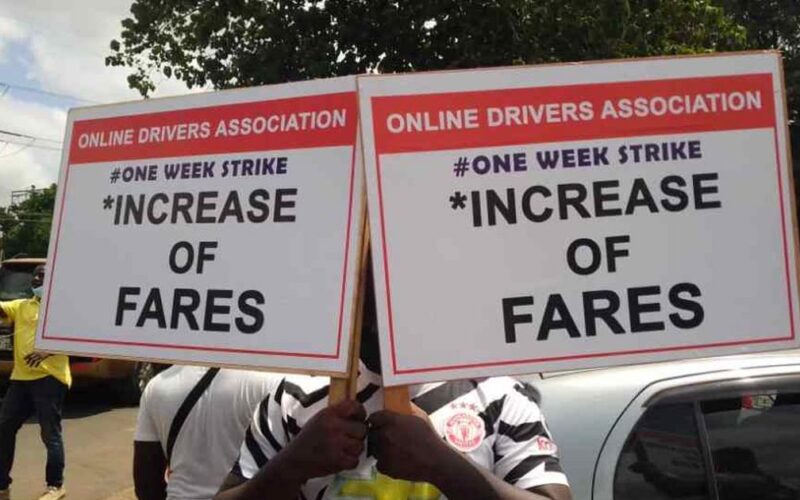Uber and Bolt drivers in Kenya’s capital, Nairobi, have launched public protests against the ride-hailing companies’ failure to implement government-mandated policies. Their key demands are:
- Commission Cap Enforcement: Drivers are calling for the government to enforce a flat 18% commission fee on Uber and Bolt.
- Minimum Fare Regulations: They also want the minimum ride fare to be fixed by law at 300 Kenyan shillings (Ksh).
According to a notice by The Kenyan Wall Street, these five-day demonstrations, described as peaceful, began on Monday, July 15th, and will continue until July 19th, running from 8:00 AM to 5:00 PM daily.
Striking for Change:
This strike aims to disrupt ride-hailing services and force Uber and Bolt to negotiate better terms for drivers. It’s not the first time drivers have resorted to such action; previous strikes have highlighted ongoing tensions between the companies and their drivers. In 2019, a series of nationwide strikes drew attention to the drivers’ grievances, ultimately resulting in the establishment of an 18% commission cap in 2022.
The drivers celebrated the commission cap as a significant victory, but the current strike shows that unresolved issues persist. Uber and Bolt must address these issues to ensure fair treatment and compensation within the ride-hailing industry.
Frustration with Non-Enforcement:
Despite the regulations, drivers claim that Uber and Bolt have not fully implemented these policies, prompting their current action. The drivers argue that the companies have failed to adhere to the agreed-upon commission caps and other promised benefits, leaving them in a precarious financial situation. This ongoing non-compliance has fueled their frustration and led to the decision to strike.
In addition to the strike, the drivers have also issued a stern warning: if their demands are not met, they will escalate their actions by boycotting the apps entirely. This means they would refuse to use the Uber and Bolt platforms and instead negotiate fares directly with passengers.
Read also: Microsoft to invest $1 billion in Kenyan data center after Lagos closure.
Such a move could significantly disrupt the ride-hailing market, as it would bypass the platforms’ control and potentially lead to a more chaotic and unregulated system. The drivers’ determination to take such drastic measures underscores the severity of their grievances and the urgent need for Uber and Bolt to address their concerns seriously.
Bolt’s Response:
In a statement, Bolt’s General Manager of Rides, Linda Ndungu, acknowledged the strike and emphasized the company’s compliance with NTSA regulations and licensing requirements. Bolt remains committed to working with authorities and stakeholders to ensure a “sustainable” future for the ride-hailing industry in Kenya.
Potential for Reform:
The Nairobi strike could be a turning point for ride-hailing drivers in Kenya. By demanding fairer pay and enforcement of regulations, they may force Uber and Bolt to the negotiating table, potentially leading to a more equitable industry for all.












